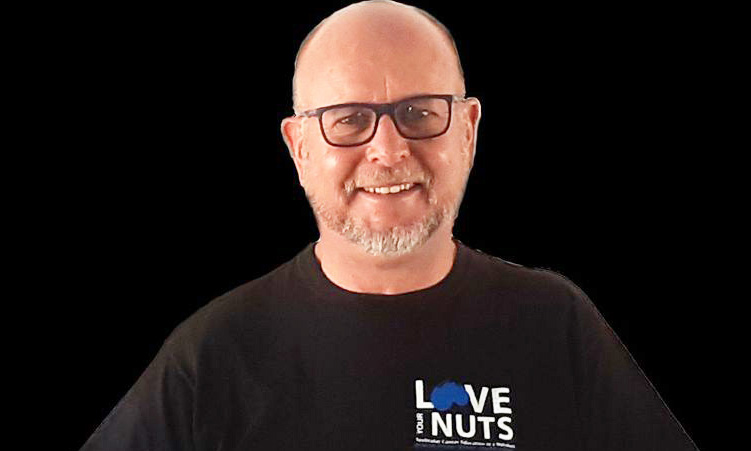Cancer survivor Torsten Koehler (58) says his life was shattered after being diagnosed with testicular cancer and eventually having one of his testicles removed in 2000.
“When the doctor informed me it’s an aggressive cancer in August 1995, my world shattered into thousands of pieces, because no one expects to be diagnosed with cancer at the age of 30.
“I was very scared and thought I would be gone in six months,” he says.
Koehler, who was a teacher at the time, describes the emotions he experienced during his treatment as a roller coaster ride, and sex was the least of his concerns.
“The removal of the testicle doesn’t affect one’s sexual health. One remaining testicle is enough to produce the necessary hormones and sperm cells to become a father. Just like living with one kidney is possible,” he says.
Koehler recounts his cancer journey as very difficult, because there was no one he could talk to who could relate to his condition at the time.
‘MEN DON’T TALK’
“The year 1995 was the pre-internet era, and there were no support groups. Talking to someone I could relate to was important for me, and I couldn’t find someone. Men don’t talk.
“Writing became my therapy, and I published it as a book titled ‘Love Your Nuts: Testicular Cancer Touched My Life’.”
He says he read about testicular cancer in a sex education book for children while preparing lessons for school.
Koehler says before his diagnosis, he found lumps in his testicle, but hesitated for two weeks before he went to the doctor.
Luckily the cancer was detected at an early stage, which decreased his risk of death, he says.
Some 28 years later, Koehler is still here, cancer free due to early detection.
The cancer did not spread to the rest of his body, but one of his testicles had to be removed.
Koehler says he was declared cancer free in 2000.
‘BEST WEAPON’
He says knowledge is the best weapon against cancer as it allows early detection.
“Raising awareness and educating people about cancer teaches them the importance of detecting cancer early,” he says.
Koehler was approached by a former pupil in 2006, who thanked him for teaching children about testicular cancer as that has allowed him to reach a doctor in time.
“I am 16 with testicular cancer, and you saved my life,” the boy told him.
Koehler says this is why he started the ‘LoveYourNuts’ campaign.
As a biology teacher, he says he dedicated one lesson per year to educating pupils on testicular cancer.
WHAT IS TESTICULAR CANCER?
The Mayo Clinic explains testicular cancer as the growth of cells which start in the testicles.
The testicles, also called testes, are found inside the scrotum.
“The scrotum is a loose bag of skin underneath the penis. The testicles make sperm and the hormone testosterone. Testicular cancer is not a common type of cancer.
“It can happen at any age, but it happens most often between the ages of 15 and 45,” the clinic’s website explains.
The first sign of testicular cancer often is a bump or lump on a testicle.
The cancer cells can grow quickly. They often spread outside the testicle to other parts of the body.
Treatment depends on the type of testicular cancer one has and how far it has spread.
Common treatments include surgery and chemotherapy.
Koehler says he had both chemotherapy and surgery as part of his treatment.
The cancer register officer at the Cancer Association of Namibia, Tareekuje Tjiriange, says testicular cancer is among the top 10 most common cancers among men in Namibia.
“Testicular cancer is one of the most curable cancers when detected early – even when it spreads to other parts of the body,” Tjiriange says.
Stay informed with The Namibian – your source for credible journalism. Get in-depth reporting and opinions for
only N$85 a month. Invest in journalism, invest in democracy –
Subscribe Now!






